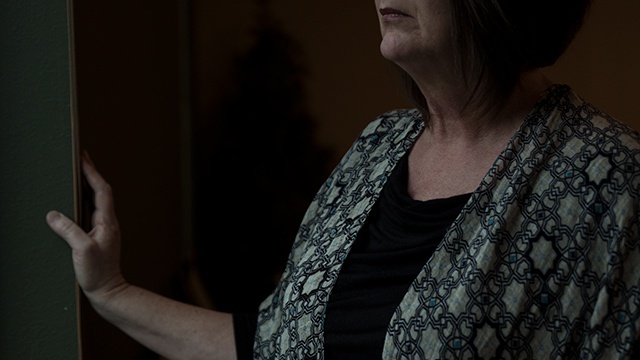2 min read
Gospel-Centered from the Start
“Let us hold unswervingly to the hope we profess, for He Who promised is faithful…Jesus Christ is the same yesterday, today, and forever.” (Hebrews...
6 min read
 Barbara Comito, former marketing director
:
March 9, 2017
Barbara Comito, former marketing director
:
March 9, 2017
Editor's note: Barbara opened up about her struggle with depression in the last post. Here, she follows up with the practical ways she manages that struggle.
By Barbara Comito, Director of Marketing & Communications
Every September, I mean to write something for Suicide Prevention Month. Every time a celebrity suicide makes the news and the handful of times suicide has indirectly touched my life, I mean to speak out. I mean to break the silence, but it is harder than it seems like it should be. I know that silence is part of the problem, that it leaves hurting people in isolation, that its only benefit is to protect my image, and still, I hesitate. I feel ashamed.
Good Christians don’t toy with the idea of suicide.
Or do they?
What are the chances that none of those people were Christians?
“Open communication is vital if we are to combat suicide. We need to discuss suicide as we would any other public health issue if we are to dispel myths about it and reduce the stigma surrounding it.” (International Association for Suicide Prevention)
OK then.
I must have been about 10 years old when I held a butcher knife to my stomach in the kitchen of my childhood home. Let’s get the obvious out of the way. There isn’t a chance I could have actually plunged that knife into my own flesh. My parents did not keep their knives sharp, and I’m not a fan of pain. It was not a well thought out plan. But the question that troubles me today is why was 10-year-old me thinking about self-destruction?
I cannot answer that question. I grew up in a stable, two-parent, Christian family. There is no obvious origin for my distress. But I can tell you that suicide was a consistent theme running through my high school writing assignments and that I never outgrew it. Suicidal ideation has haunted me for most of my adult life.
Over the years, I have come up with a plan for combatting those unwanted thoughts, for ultimately preventing my own suicide. First, a necessary disclaimer: I am not a mental health professional. This is a personal plan developed over the course of 20-plus years of counseling, spiritual guidance, and searching and struggling. My hope is that it will help someone with a similar struggle, but if you are considering suicide, I strongly urge you to stop. Call a friend, your sister or brother, your pastor, or call the National Suicide Prevention Lifeline, 1.800.273.8255. Call someone. Reach out.

1) I talk to myself over and over, every day, multiple times a day. Here's what I say: "Staying alive is more important than having it all together, appearing to have it all together, or even, getting it right."
Put another way, I preach the gospel to myself.
“Christians need the gospel as much as non-Christians do.” – Timothy Keller
Here’s my mini-sermon: Yes, you messed up. You said the wrong thing. You missed a deadline. You did not love. You were self-absorbed. You missed the boat. You are not as smart as you sometimes think you are. You hurt someone. You were lazy. You were envious. You wasted your time, your gifts, your opportunity. It’s all true. Now, STOP going over and over those moments in your head, lay them at the cross and listen to what God says: “Therefore, there is now no condemnation for those who are in Christ Jesus.” You are in Christ Jesus. He does not condemn you. Confess. Ask for forgiveness. Then forgive yourself. He knows that you are weak. He knows that you are but dust. He died for you. He loves you. He is not pointing a finger at you, ridiculing you, heaping shame on you. That is another voice, and it is a lie. God loves you. Look for him. Seek him. Fall into his arms. Believe.
The following words from Martyn Lloyd-Jones have been a huge help to me: “Have you realized that most of your unhappiness in life is due to the fact that you are listening to yourself instead of talking to yourself?”
My voice accuses me. I must intentionally stop listening (often this means I must interrupt my thought processes several times a day, sometimes every few seconds) and speak the truth to myself instead.
2) I take my medication. I won’t say much here. I know this is a controversial subject for Christians. I get that. The brain is a complex organ, and I’m not sure anyone can adequately explain the relationship between the mind and the soul. Multiple doctors have explained brain chemistry to me, but I still cannot tell you exactly how anti-depressants work. I can only tell you this. I have tried to go without them. Multiple times, I thought I had my depression under control. I thought I had spiritual disciplines in place to combat the negative thoughts. I thought I was emotionally healthy. It has not worked well. Over the long term, I lose my perspective on reality. So, I take my medication.
3) I read the Psalms. I hate to admit this, but for many years, I thought the Psalms were the fluff of the Bible. Oh, how wrong I was. In the Psalms, you find honest relationship between God and man. In David’s and the other psalmists’ words, I have found a voice for my own emotions and have worked to memorize multiple passages:
“Turn to me and be gracious to me, for I am lonely and afflicted. Relieve the troubles of my heart and free me from my anguish. Look on my affliction and my distress and take away all my sins.” (Psalm 25:16-18)
“Have mercy on me, O God, according to your unfailing love; according to your great compassion blot out my transgressions…Let me hear joy and gladness; let the bones you have crushed rejoice.” (Psalm 51: 1, 8)
“For in the day of trouble he will keep me safe in his dwelling; he will hide me in the shelter of his tabernacle and set me high upon a rock…Do not hide your face from me, do not turn your servant away in anger; you have been my helper. Do not reject me or forsake me, God my Savior. Though my father and mother forsake me, the Lord will receive me.” (Psalm 27:5, 9-10).
4) I pray and I ask other people to pray for me. When I am well, I pray throughout the day. I have an ongoing conversation with God. I admit my weaknesses and failures, my desperate need for him, and I ask for help. When I am not well, I ask others to do what I cannot seem to do myself.
5) I cultivate relationships. I am an introvert to the max. I love relationships, but they exhaust me, and if I’m not careful, I find myself withdrawing. For my literal sanity, I choose my relationships carefully. I desperately need people with whom I can be authentic and who will reciprocate. I see a counselor. I see a spiritual director. I try hard to be brutally honest with them.
6) I get outside. Fresh air. Dirt in my fingers. A walk to the river. Blood pumping. All of these things help.

7) I do the next thing. The most mundane, everyday tasks are good for me. Mowing the lawn. Pulling weeds. Laundry. Dishes. These are usually the last things I want to do, but when I do them, I feel better. They get me out of my head.
8) I practice attentiveness. When I am present in the moment, I am less inclined to obsess about my mistakes or worry about the future. Beauty has a healing power, and when I’m paying attention, I realize it is all around me. Poetry. Music. Nature. Art. Small and large wonders. They all help me to remember the goodness of God.
I didn’t say I count my blessings.
Once I tried sharing my feelings of desperation with someone who told me to count my blessings, focus on the good - all the things for which I should be thankful. The person meant well, but here’s what his words did: Shut me up. Made me more ashamed. Added to my self-loathing. While I am often self-absorbed, I am not unaware of how much I have been given. Rather, in an ugly twist, the weight of that knowledge actually creates a heightened need to perform – to whom much is given, much is expected – and a greater sense of disgust with my inadequacy.
I believe most suicidal people truly believe (in the moment) that their loved ones will be better off without them. Of course, that is absolutely not true. I have witnessed the devastation a suicide wreaks on family and friends (memories that serve as a powerful personal deterrent), but it is a symptom of the craziness that the person in distress cannot see that staying alive is the important thing, which brings us back to point #1.
Every day I need to remind myself that God is not fed up with me. He loves me. Immeasurably. (You, whether you have any suicidal tendencies or not, need this too.)
If you have a friend like me…
Speak truth to yourself by placing reminders in places where you look every day. These printable bookmarks contain biblical truth about your identity in Christ. You are loved.

2 min read
“Let us hold unswervingly to the hope we profess, for He Who promised is faithful…Jesus Christ is the same yesterday, today, and forever.” (Hebrews...

9 min read
To celebrate 75 years of serving the Inland Northwest, we are spending the year remembering our history and the faithfulness that built us and...

2 min read
In 2026, Union Gospel Mission Inland Northwest is approaching our 75th Anniversary! This is a milestone that invites gratitude and reflection, and...

Did you know Union Gospel Mission has a camp for underprivileged kids? We want every child to have the opportunity to spend a week at camp –...

By Ron Hauenstein, Crisis Shelter volunteer "What have we begun, when we pray like this? What have we done? Can we ever know – what seeds we sow,...

Serious mental illness. It’s a tough topic. But when we exist to serve the homeless, we simply cannot ignore it. As we mentioned in a previous post,...